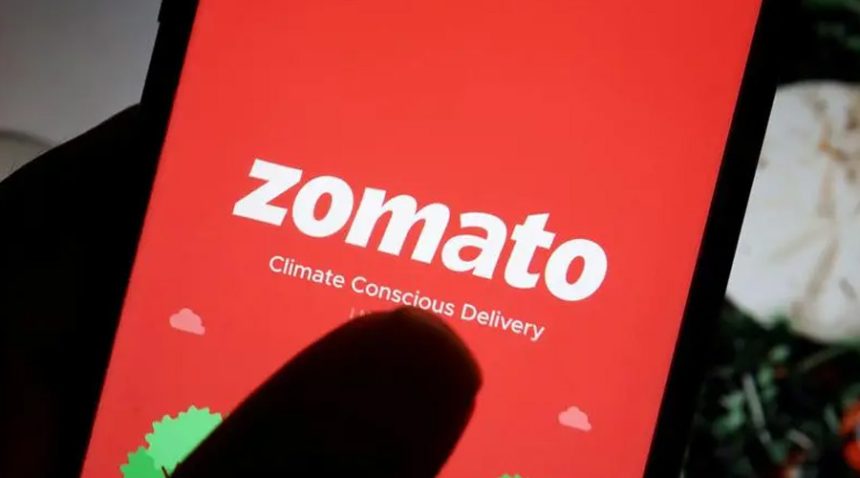From exclusive contracts to competitive issues – this case could reshape India’s food delivery market
Zomato and Swiggy, the two dominant food delivery platforms in India, are under scrutiny from the Competition Commission of India (CCI) due to alleged anticompetitive practices. The investigation, which began in 2022, stems from claims by the National Restaurant Association of India (NRAI) that both companies engage in practices that favour specific restaurants, potentially stifling competition and restricting consumer choice. Below is a closer look at the reasons for these antitrust challenges and what they mean for India’s food delivery market.
Allegations of Exclusive Contracts
At the core of the antitrust challenge is the issue of exclusivity agreements between the food delivery platforms and certain restaurants. Zomato and Swiggy are accused of creating agreements that unfairly benefit select restaurants, leading to an unbalanced market.
Zomato, for instance, has been reported to sign contracts with certain restaurants that allow it to offer them lower commission fees. These favourable terms are not extended to all restaurants, giving selected partners an advantage. This setup could potentially dissuade other restaurants from joining the platform or make it harder for them to compete on an equal footing.
Similarly, Swiggy has been accused of offering exclusive contracts to restaurants, promising guaranteed business growth if they remain exclusive to its platform. By securing these exclusivity deals, Swiggy effectively restricts certain restaurants from partnering with other delivery platforms, potentially limiting consumer choice.
Impact on Market Competition
The CCI has raised concerns that these exclusivity agreements prevent the market from becoming more competitive. By favouring certain restaurants, Zomato and Swiggy create a barrier for smaller, independent restaurants to compete. This could lead to reduced choices for consumers, who may not see a full range of dining options due to the selective nature of these agreements.
Such arrangements may also discourage new entrants in the food delivery market. When dominant players engage in exclusive contracts, it creates an uphill battle for smaller or newer platforms to attract restaurants and gain a foothold. As a result, the food delivery landscape in India has become less diverse, and smaller competitors find it challenging to compete against the market leaders.
In addition, the CCI argues that these agreements could result in higher prices for consumers. By limiting competition, Zomato and Swiggy may have more freedom to dictate delivery charges or increase commission fees for non-preferred restaurants, which could translate to higher costs for end-users.
National Restaurant Association of India’s Complaint
The NRAI filed a formal complaint against Zomato and Swiggy, sparking the CCI’s investigation. The NRAI represents the interests of restaurants across India and has been vocal about its concerns regarding the practices of these food delivery giants. According to the NRAI, Zomato and Swiggy use their dominant positions to control pricing, restrict consumer choice, and favour certain restaurants over others.
The NRAI’s complaint highlighted the unequal footing on which independent and smaller restaurants are placed when competing on these platforms. They claim that the preferential treatment given to select restaurants through lower commission fees or guaranteed business growth leaves other restaurants at a disadvantage. For small or family-owned businesses, these challenges can lead to declining visibility and revenue, potentially pushing them out of the market.
The NRAI has argued that these practices impact the entire restaurant ecosystem in India, with small businesses suffering the most. The association continues to push for fair and transparent practices that allow equal opportunities for all restaurants.
CCI Investigation and Findings
The CCI began investigating Zomato and Swiggy in 2022 after receiving the complaint from the NRAI. In March 2024, the CCI shared the findings of its investigation with Zomato, Swiggy, and the NRAI. The initial findings suggest that certain business practices of Zomato and Swiggy might indeed have anticompetitive effects on the market.
The CCI’s report focused on the ways in which exclusive contracts and preferential treatment could be restricting competition. According to the findings, these practices may lead to reduced consumer choice, as many smaller or independent restaurants may struggle to compete with larger chains receiving favourable treatment.
The CCI’s findings also highlight potential issues with pricing. Exclusive contracts could lead to higher costs for restaurants that are not part of these agreements, as they may be subjected to higher commission fees. Consequently, these higher fees might be passed on to consumers in the form of higher menu prices or delivery fees.
The CCI’s preliminary findings have brought these issues into the spotlight, with stakeholders across the industry closely watching the outcome of the case.
Zomato and Swiggy’s Response
Both Zomato and Swiggy have denied the allegations, maintaining that their business practices comply with India’s legal framework. They argue that their agreements with restaurants do not violate competition laws and that the CCI has not yet issued a final ruling on the matter.
In their defence, Zomato and Swiggy assert that they provide a platform that benefits a vast network of restaurants, enabling them to reach a larger customer base. They argue that these agreements help improve operational efficiency, allowing them to offer better services to both consumers and restaurants.
Additionally, Zomato and Swiggy have stated that their primary goal is to enhance consumer experience by offering a diverse range of dining options. They contend that any agreements made with specific restaurants are designed to improve customer satisfaction rather than limit competition.
Broader Implications for the Food Delivery Industry
The outcome of the CCI’s investigation could have lasting effects on India’s food delivery sector. If the CCI concludes that Zomato and Swiggy have indeed violated antitrust laws, it could lead to stricter regulations for food delivery platforms. This, in turn, might force Zomato and Swiggy to revise their contracts with restaurants and adopt more transparent practices.
For the restaurant industry, a ruling against exclusivity agreements could mean greater flexibility and a more level playing field. Smaller and independent restaurants might find it easier to compete without the influence of preferential treatment agreements. Increased competition could lead to improved pricing, quality, and service options for consumers.
This case also underscores the growing regulatory focus on digital platforms and their market dominance. As India’s digital economy expands, authorities are increasingly scrutinizing large tech companies and their business practices. The investigation into Zomato and Swiggy reflects a broader trend where regulators aim to promote fair competition in the digital space.
The Future of India’s Food Delivery Market
As the CCI moves closer to a final decision, the focus remains on ensuring fair competition and equal opportunities within India’s food delivery sector. For Zomato and Swiggy, any changes mandated by the CCI could alter their current business models. They may need to rethink their approach to restaurant partnerships and avoid practices that could limit competition.
A transparent and competitive environment could attract new players to the food delivery market, enhancing options for consumers. With increased competition, there may be a shift toward lower delivery fees and reduced commission charges for restaurants, benefiting both customers and smaller restaurant operators.
While Zomato and Swiggy maintain that they are compliant with current regulations, the outcome of this case could set an important precedent for other digital marketplaces in India. Should the CCI decide in favour of the NRAI’s complaint, other tech platforms might face similar scrutiny, fostering a more competitive digital economy.
In conclusion, the antitrust challenges facing Zomato and Swiggy represent a significant moment for India’s food delivery market. The case raises important questions about fairness, competition, and consumer choice in the fast-growing digital landscape. As the CCI’s investigation unfolds, stakeholders across the industry await the outcome, hoping for a resolution that encourages a balanced and competitive market.






